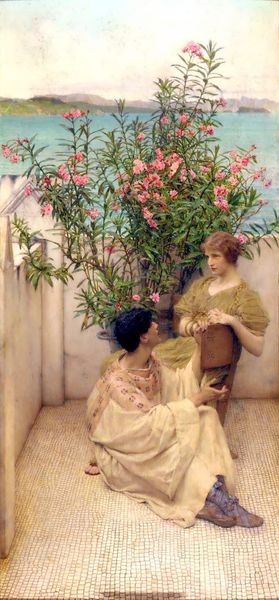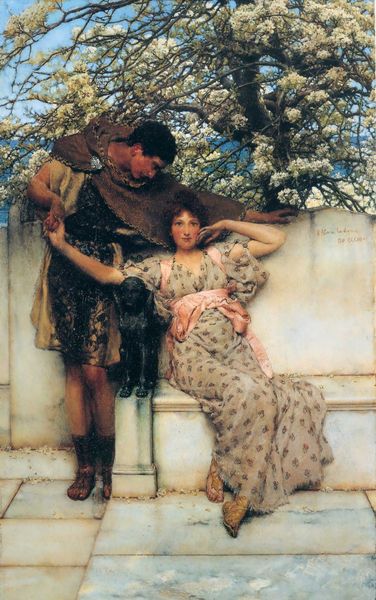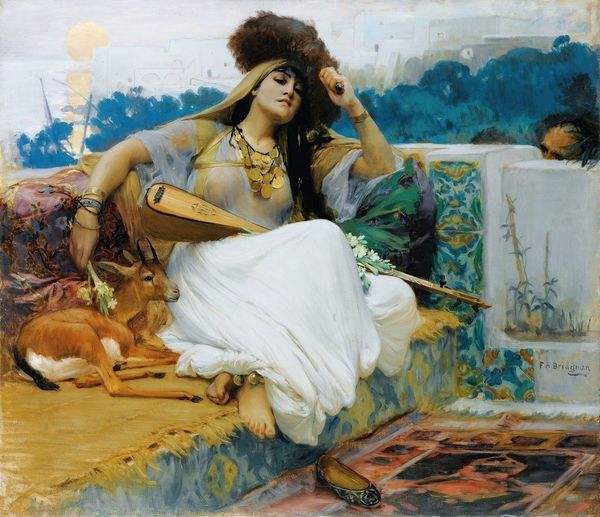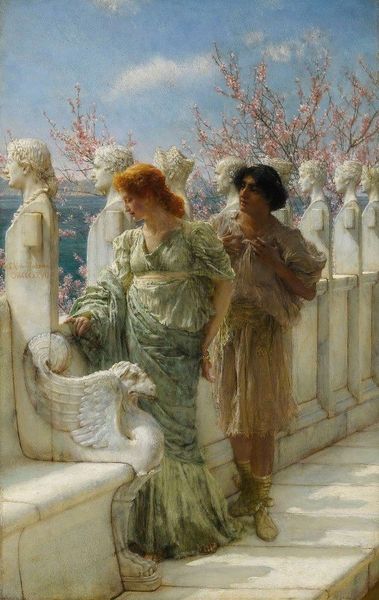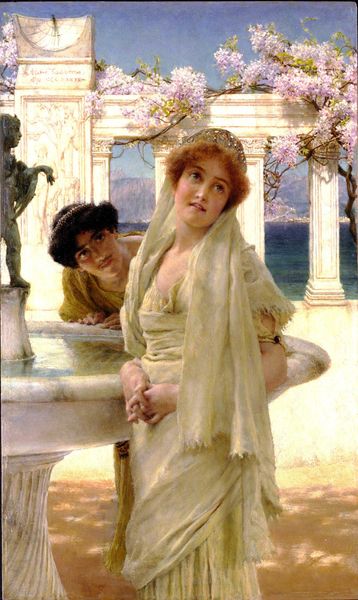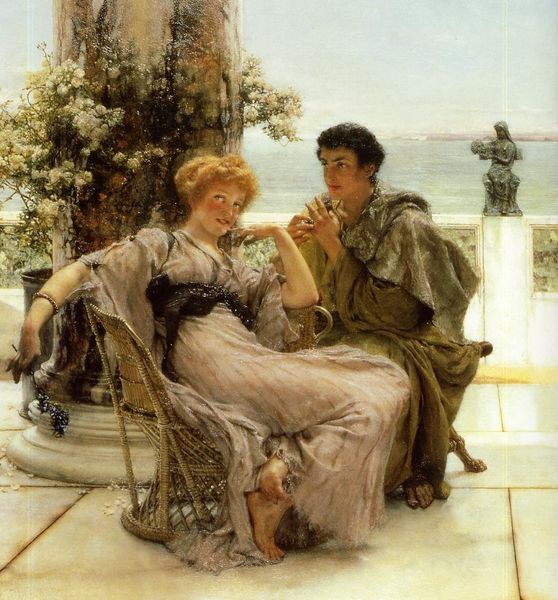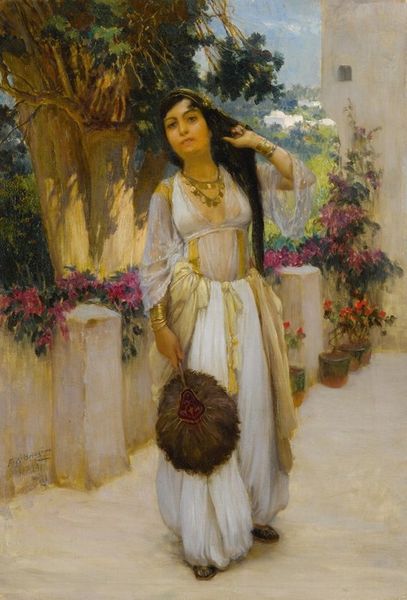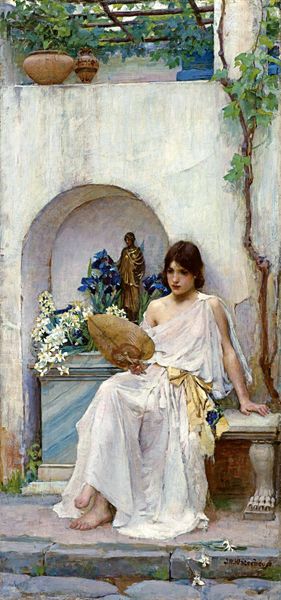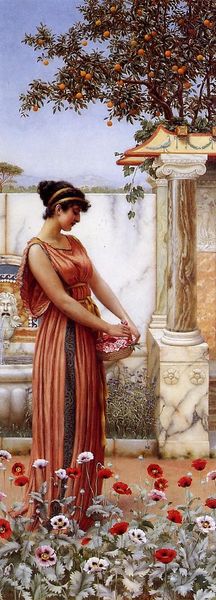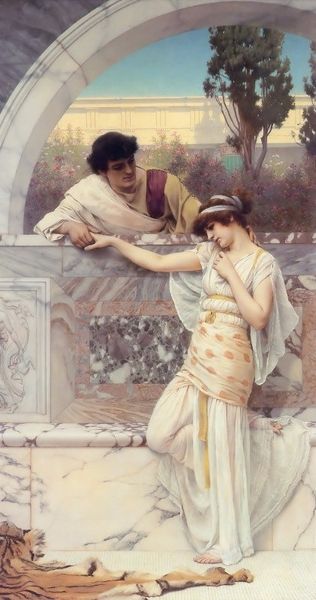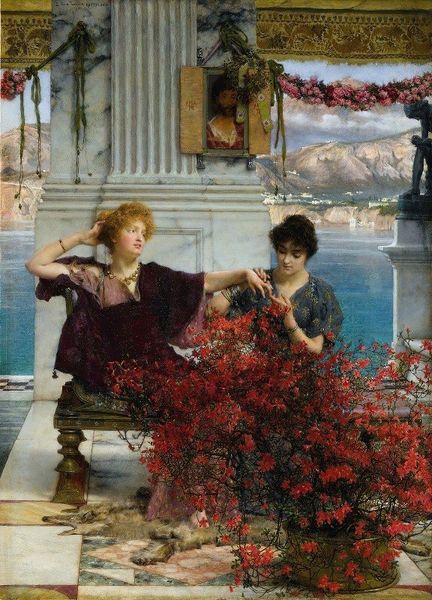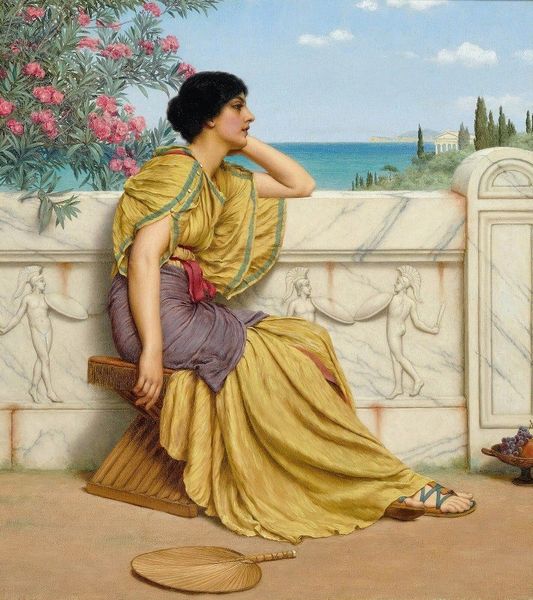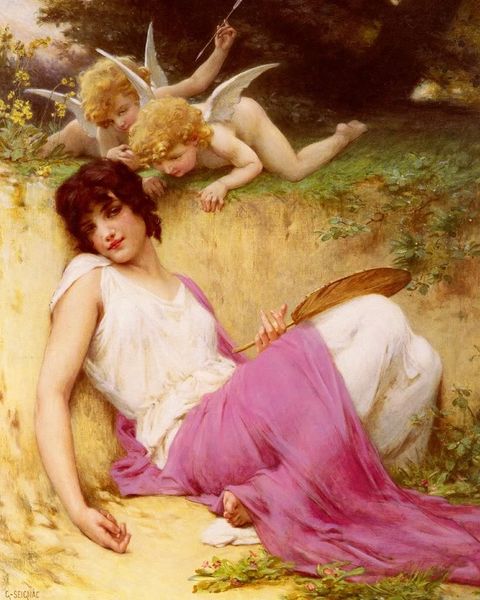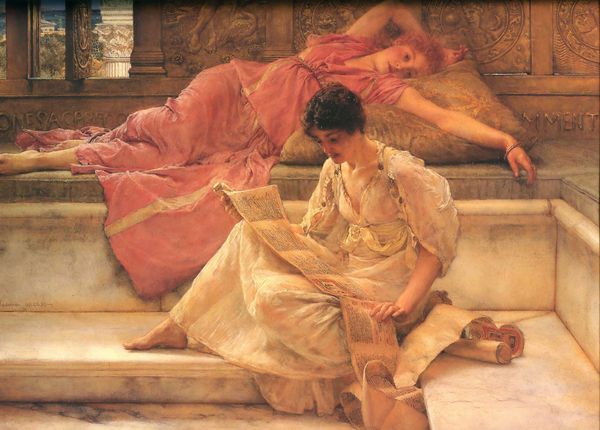
painting, oil-paint
#
portrait
#
figurative
#
painting
#
oil-paint
#
painted
#
figuration
#
oil painting
#
classicism
#
romanticism
#
genre-painting
#
history-painting
#
academic-art
Copyright: Public Domain: Artvee
Editor: Here we have Lawrence Alma-Tadema’s "An Eloquent Silence," an oil painting depicting two figures in what looks like ancient Roman attire. The man seems lost in thought, and the woman stares blankly ahead. There's a quiet melancholy in this painting; what story do you think it tells? Curator: It's interesting you pick up on the melancholy, because Alma-Tadema was known for these idyllic, often sanitized, depictions of the classical world. What if that melancholy speaks to the impossibility of truly representing history? The artist, a product of his Victorian context, projects his own anxieties and desires onto this image of the past. Consider the woman’s apparent passivity—how might this reflect the limited roles assigned to women within 19th-century society, a limitation she then embodies even in this historical setting? Editor: That's a really insightful point. I hadn't considered how Alma-Tadema's own time could influence his vision of the past so much. The floral decorations almost seem to act as a contrast to their emotional state, as if the painter is compensating for an unfulfilled expectation. Curator: Precisely. And let's not ignore the implicit power dynamics. He has the spear, she the flowers. Doesn't this division speak to assigned societal roles? Are we seeing not an accurate representation of the past but instead a Victorian lens imposing itself onto antiquity? Editor: So, maybe "An Eloquent Silence" isn't just about a moment in history but also about the silences imposed by social structures on specific people. That’s much more engaging than I initially thought! Curator: Yes, that Victorian idea of "classicism", too often whitewashed, excludes different intersectional groups of humans that have existed through history. The painting itself invites us to question not only what's depicted but why, and whose stories remain unheard. Editor: It gives me a lot to consider and research about the complex relationship between art, gender, and power in a new way! Curator: Agreed. Looking through the prism of gender dynamics and other social identities, enriches not only our viewing experience but our understanding of both historical eras simultaneously.
Comments
No comments
Be the first to comment and join the conversation on the ultimate creative platform.
